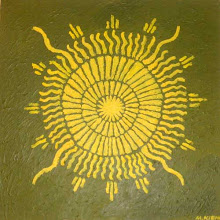[Preface- for my gender&poverty class we had to take on an identity someone struggiling with poverty, and write a reflective paper about our experience. it was an extremely helpful excersize in empathy, and it really helpt me understand the corruption of the welfare system... which prior to the class i had no idea existed. the following are some experts from my experience. i was assigned the identity of erika- a young, First nations woman who moved to kingston in hopes of finding a "better" life, but instead finds herself without employment, lacking support and on welfare. Dealing with invasive welfare policies and racism, Erikas story is the story of many women whose lived realities are bound by the shackles of grinding poverty]
Erika taught me that poverty is soul crushing. She taught me Desperation. Hopelessness. Fear. Worry. Humiliation. Vulnerability. Anger. Suspicion. The emotions embedded in poverty are truly raw and truly debilitating. Erika taught me that we live in a world that scorns us as failures if we can’t “find” work. We live within a system that makes us feel guilty for being poor. We exist in a society where being on welfare makes you feel like an unwanted burden—an undeserving baby suckling desperately at the dried up teat of a loveless government. We live in a country where the day-to-day anxieties of mere survival are silenced and ignored, yet they consume our every thought. While the rest of society pretends we don’t exist, our hungry stomachs remind us of the aching reality of our own existence. Our existence feels raw and naked, as the welfare system strips us of dignity, dehumanizes us, invades us, mocks us, and breaks us. Instead of hope, we are filled with fear. Because to be poor, to be Aboriginal, is to be criminal.
* * *
As a single-woman, my welfare cheque was only $572/month, which meant within only the first week I was already $143 short to even pay for basic rent/utilities. Realistically on that little amount of monthly income I would not have no money leftover for food/laundry/phone/savings. The meager amount of welfare payments set us up for failure. How do you possibly survive off of $572 a month?!
I think that’s the point. Poor, Aboriginal “dependent” women were “never meant to survive”. Our histories and experiences of violent colonialism remind us that our survival was merely an obstacle in the path of the development of the Canadian nation. Our present realities of continued oppression reminds us that native bodies are disposable –we see it in the lax law enforcement regarding violence against aboriginal women, particularly in the murder of Pamela George, (Wallis and Kwok 2008, p. 249), we see it in the government’s failure to recognize the unique needs of First Nations peoples, we see it in the system’s complete disregard of poverty as racialized. We are being crushed by the fist of poverty because we were not meant to survive.
I remained in poverty because I could not find viable employment. I could not find viable employment, not because I was lazy or lacked ambition but because “…there simply are not enough jobs to go around” (Swanson 1997, p. 151). Society blamed me for my struggles. This is a society convoluted with the myth of success defined by individualism. This is a society polluted with the toxic illusion that we all start off having “equal” opportunities. A society that overlooks the disproportionate amount of racialized/immigrant women who are experiencing the death-grip of systemic social exclusion and poverty.While I am not entirely dismissing my own agency, I am saying that the welfare system and policy is self-deprecating and makes it very difficult to see an out. It shifts all fault on the individual, rather than focusing on the reason why such crippling poverty exists in the first place. The government has significantly transformed the welfare system in response to a supposed “need” to clamp down on welfare “frauds”, but yet turns a blind eye to the system that produces the need to “cheat” in order to survive. The focus on “cheating the system” obscures the more important issue of all –the filthy rotten system of capitalism itself. Why is a “.3% fraud rate” in Canada (Little 2001, p. 30) more disconcerting than the fact that “the richest 10% of ‘our nation’ own more than half of Canada’s wealth”?!?! Perhaps in attempting to “combat poverty” and “reduce the need for welfare” federal governments should invest time in deconstructing and destabilizing the very system that creates the inequalities of poverty in the first place.. As Swanson argues, many factors push the unemployment (and hence poverty) rate up into a double digit range: such as free trade, and the ability of multinational companies to move quickly around the world to encourage jobs in countries where wages are lowest…” (Swanson 1997, p. 151). Rather than tackling these devastating issues, the government refuses responsibility by blaming and pathologizing ‘victims’ and denying systemic racism rather than supporting those being affected most by the vice of capitalism. This is why welfare was unable to remove me from poverty.
As a single-woman, my welfare cheque was only $572/month, which meant within only the first week I was already $143 short to even pay for basic rent/utilities. Realistically on that little amount of monthly income I would not have no money leftover for food/laundry/phone/savings. The meager amount of welfare payments set us up for failure. How do you possibly survive off of $572 a month?!
I think that’s the point. Poor, Aboriginal “dependent” women were “never meant to survive”. Our histories and experiences of violent colonialism remind us that our survival was merely an obstacle in the path of the development of the Canadian nation. Our present realities of continued oppression reminds us that native bodies are disposable –we see it in the lax law enforcement regarding violence against aboriginal women, particularly in the murder of Pamela George, (Wallis and Kwok 2008, p. 249), we see it in the government’s failure to recognize the unique needs of First Nations peoples, we see it in the system’s complete disregard of poverty as racialized. We are being crushed by the fist of poverty because we were not meant to survive.
I remained in poverty because I could not find viable employment. I could not find viable employment, not because I was lazy or lacked ambition but because “…there simply are not enough jobs to go around” (Swanson 1997, p. 151). Society blamed me for my struggles. This is a society convoluted with the myth of success defined by individualism. This is a society polluted with the toxic illusion that we all start off having “equal” opportunities. A society that overlooks the disproportionate amount of racialized/immigrant women who are experiencing the death-grip of systemic social exclusion and poverty.While I am not entirely dismissing my own agency, I am saying that the welfare system and policy is self-deprecating and makes it very difficult to see an out. It shifts all fault on the individual, rather than focusing on the reason why such crippling poverty exists in the first place. The government has significantly transformed the welfare system in response to a supposed “need” to clamp down on welfare “frauds”, but yet turns a blind eye to the system that produces the need to “cheat” in order to survive. The focus on “cheating the system” obscures the more important issue of all –the filthy rotten system of capitalism itself. Why is a “.3% fraud rate” in Canada (Little 2001, p. 30) more disconcerting than the fact that “the richest 10% of ‘our nation’ own more than half of Canada’s wealth”?!?! Perhaps in attempting to “combat poverty” and “reduce the need for welfare” federal governments should invest time in deconstructing and destabilizing the very system that creates the inequalities of poverty in the first place.. As Swanson argues, many factors push the unemployment (and hence poverty) rate up into a double digit range: such as free trade, and the ability of multinational companies to move quickly around the world to encourage jobs in countries where wages are lowest…” (Swanson 1997, p. 151). Rather than tackling these devastating issues, the government refuses responsibility by blaming and pathologizing ‘victims’ and denying systemic racism rather than supporting those being affected most by the vice of capitalism. This is why welfare was unable to remove me from poverty.
***
I believe that the Government pries open our jaws, and crams a fistful of “independency” down our throats…. forcing us to swallow the nauseating propaganda of “individualism”. This is the greatest flaw of the welfare policy changes— the myth of mandatory independency. What we need is to relearn the value of a radical-interdependency. We need to learn and VALUE the significance that community can bring into our lives. We need to recognize the truly revolutionary power of community, mutuality and relationships in working towards resistance, dignity, healing, survival and our collective struggle for equality. We need one another. Desperately.
*****
The most important thing I learned from this exercise is that even in my own state of class privilege as a white educated student, I am not free. This activity resolidified my favorite quote by Audre Lorde, in Sister Outsider: “I am not free when any woman is unfree, even if her shackles are very different from my own. And I am not free as long as one person of Color remains chained. Nor is any one of you” (Lorde 1984, p. 133). This excercise is a lesson in compassion, empathy and freedom. It is a lesson that our own liberation is inextricably bound in the liberation of those around us who remain burned and bruised by an unjust system. Our own freedom will never happen, as long as stories like Erika's are ignored and forgotten.
The most important thing I learned from this exercise is that even in my own state of class privilege as a white educated student, I am not free. This activity resolidified my favorite quote by Audre Lorde, in Sister Outsider: “I am not free when any woman is unfree, even if her shackles are very different from my own. And I am not free as long as one person of Color remains chained. Nor is any one of you” (Lorde 1984, p. 133). This excercise is a lesson in compassion, empathy and freedom. It is a lesson that our own liberation is inextricably bound in the liberation of those around us who remain burned and bruised by an unjust system. Our own freedom will never happen, as long as stories like Erika's are ignored and forgotten.









I sympathize with your outrage about making people in poverty live on $572 a month, however, there are a few more elements you need to consider to have a complete picture. Subsidized housing (if she gets it, which can be an outrage in itself) can allow Erika to rent a place at $180-$200 a month. Also rooming houses (also awful places to live), frequently rent at 400-500 a month, utilities included. The outrage there is that they're shit holes and that the government still assumes food will come from food banks or soup kitchens.
ReplyDeletemy outrage doesnt simply lay in the fact that people are living off of $572. my outrage is in the entire system itself. its in the intense suvellience policies that the Harrison government implemented in 95 to prevent "fraud", that still inform peoples experiences of poverty. they are invasive and dehumanizing. like phone-interviewing for initial stage of application, mandetory drugtesting, "snitch" lines, sometimes even finger printings. heavy regulations, and heavy penalties for "fraud", that include suspension of beneifits, simply for example, growing vegetables (extra food) without claiming it. it creates an entire climate of fear. and supsison. distrust. its awful.
ReplyDeletep.s. this was just a few experts from the paper.